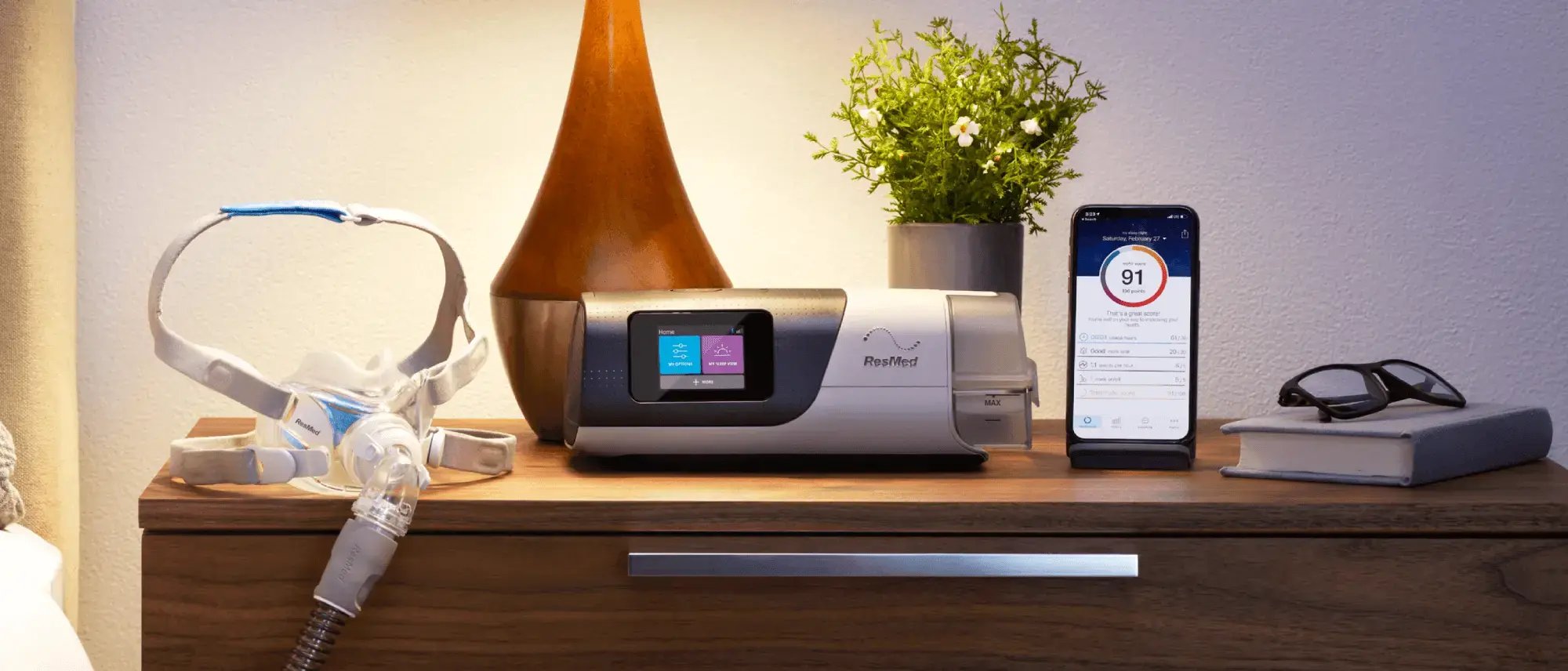CPAP Therapy Treatment

Here are some of the other related articles
Please click and select from the dropdown menu
How is sleep apnea diagnosed?
Sleep apnea can be diagnosed through a number of different sleep tests, such as a Level 4 home sleep test. A home sleep test is a simple, multi-night test that's easy to set up and use. If you have already been diagnosed with sleep apnea, the great news is there are treatments that can help you on the journey to better sleep.
What treatments are available for sleep apnea?
Continuous positive airway pressure therapy (CPAP) is considered the gold class treatment for sleep apnea. It uses a machine to help a person who has obstructive sleep apnea (OSA) breathe more easily during sleep. A CPAP machine increases air pressure in your throat so that your airway does not collapse when you breathe in. You use a CPAP machine in combination with a CPAP mask. You use CPAP while you sleep. Your bed partner may sleep better, too!
Types of CPAP machines
There are a variety of different machines that can be used to treat sleep apnea.
Fixed Pressure CPAP Machines (CPAP)
These deliver a constant pressure level while you sleep. Comfort features, such as a ramp or pressure relief functions, help to make it more comfortable for the user. Fixed pressure CPAP machines can assist manage mild to moderate OSA patients. With a fixed pressure CPAP, it is important to regularly get assessed by your doctor to ensure your pressure setting is at the optimum for your needs. Browse our Fixed Pressure CPAP Machines »
Automatic CPAP Machines (APAP)
They use algorithms to subtly sense changes in your breathing and will adjust the pressure of the air required to keep your airway open. At certain times of the night, you may require less pressure and at other times you might require more. Browse our Automatic Machines »
Bilevel Machines
If you have used a CPAP machine but still find it difficult to adjust your breathing, your doctor may recommend a BiPAP or Bi-Level machine as an alternative. Similar to a CPAP machine, a BiPAP delivers pressurized air through a mask to your airways. The point of difference is that the BiPAP has dual pressure settings, which allow you to get more air in and out of your lungs. Browse our BiLevel and BiPAP Machines »
Types of CPAP masks
Like CPAP machines there is a range of CPAP masks available for you. Finding the right sleep apnea mask for your own level of comfort is essential for the success of your CPAP therapy.
Full Face CPAP Mask
A mask that covers your nose and mouth. They are a great choice for stability under higher therapy pressures, mouth breathers, and for people with nasal obstructions. Browse our Full Face Masks »
Nasal Mask
A mask that covers your nose. Nasal CPAP Masks are the most popular choice for many CPAP users. This mask is a great choice for those with sensitive skin who can breathe comfortably through the nose. Also a great choice for those who need extra support to keep their sleep apnea mask on Browse our Nasal Masks »
Nasal Pillows Mask
These masks fit directly into the base of your nose, with pillow-type cushions that seal around your nostrils. This CPAP mask design allows patients to read, and watch TV due to its less intrusive design. This mask is compatible with those who experience leakage due to facial hair. Browse our Nasal Pillow Masks »
What to expect with sleep apnea treatment
After you begin treatment you should start to feel the benefits of CPAP therapy including reducing or alleviating your symptoms of sleep apnea, such as excessive daytime sleepiness and morning headaches. It may take time for you to become comfortable with using CPAP but we will be with you every step of the way. When you are using CPAP, you may need to see your doctor or sleep center regularly. You may also need more sleep studies to adjust the CPAP machine and check whether the treatment is working. You may need to try another type of mask or make other adjustments to your therapy.
Interested in finding out more about CPAP therapy? Get in touch today
Home sleep tests, such as the onesleeptest, are not recommended if you suffer from the following conditions: Neuromuscular disease, severe COPD, hypoxia and/or hypercapnia at rest, morbid obesity, significant cardiovascular disease and chronic narcotic use. You should speak to your doctor to discuss sleep test options and whether a home sleep test is right for you.
ALWAYS READ THE LABEL AND FOLLOW THE INSTRUCTIONS FOR USE. You should speak to your doctor about your symptoms and whether a CPAP device is suitable for you.
.webp?width=1158&height=143&name=Combined%20logo%20-%20Ecom%20Main%20300x200%20(1).webp)